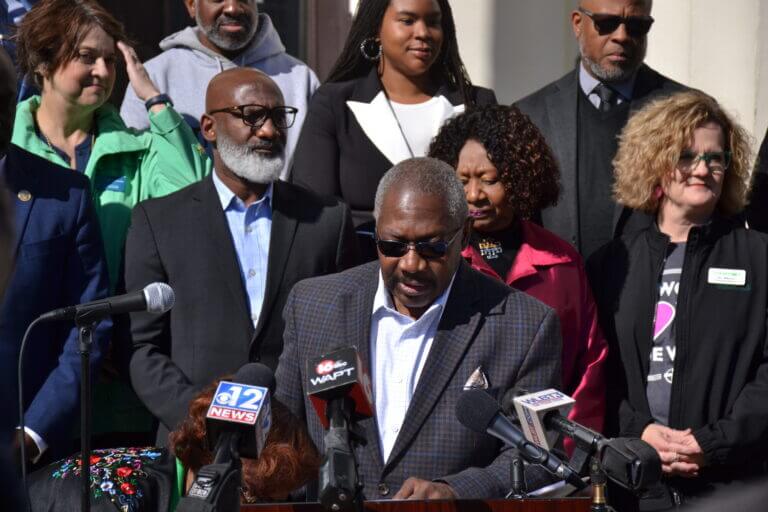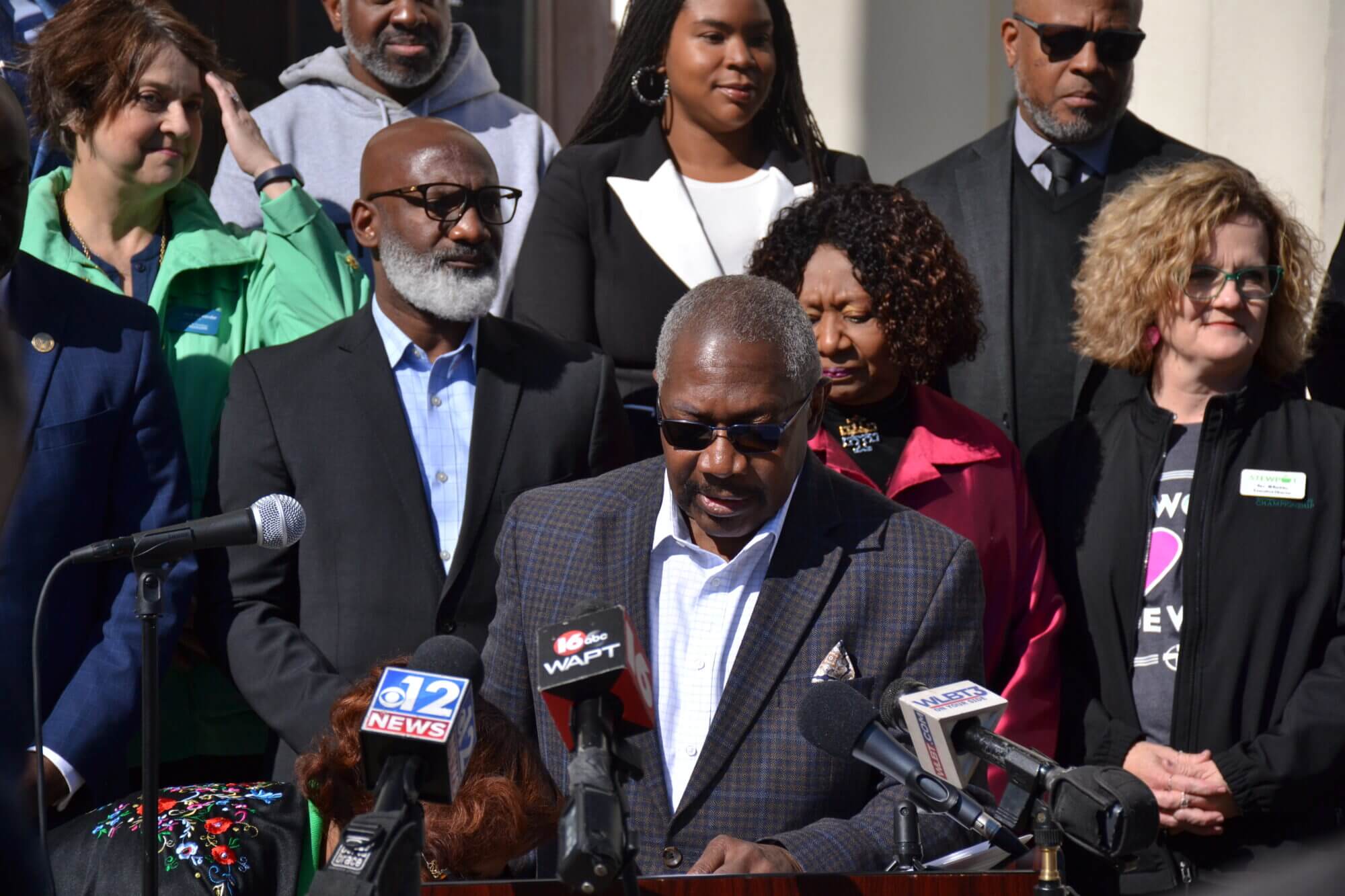

Flanked by a coalition of city leaders from nonprofits, food pantries and churches, Jackson Mayor John Horhn took to the steps of City Hall Friday to announce a coordinated effort to counter the anticipated rise in food insecurity in the capital city amid the ongoing federal government shutdown.
Coming the day before federal nutrition support is set to be suspended on Saturday, Horhn said the city is pledging $150,000 for meals and targeted food assistance throughout the metro area. The funding will chiefly support two nonprofits – the Community Foundation of Mississippi and supper meals provided by Jackson Public Schools.
“When neighbors are in need, we rally,” he said.
The mayor also called on Jacksonians with the means to donate nonperishable goods and money to these efforts, noting he had already pledged $1,000 of his own money. The city funds will come from a suspended program, he said.
“Let’s make sure no one faces an empty refrigerator or dining table,” he said.
Fire stations throughout the city will accept donations of nonperishable goods. The National Folk Festival, set for Nov. 7-9, will also have a donation box next to the guest services booth.
City leaders said food pantries in the metro area need volunteers.
“One of the things that will constrain us most is if we don’t have the staff and the manpower to meet the needs,” said Jill Buckley, the executive director of Stewpot Community Services.
In an example of the coordinated effort, Karla McCullough, executive director of the Juanita Sims Doty Foundation, said the nonprofit has over 250 volunteers who can help the pantries process food donations. She also thanked Horhn for his leadership.
“Youth and community, those are our north stars,” she said. “So wherever they go, whatever they need, this is where we go and we provide what we can to fill the need.”
In a press release, JPS said it was expanding its supper meal program beginning on Monday. Meals will be available from 4-5:30 p.m. at eight schools in the metro area. Students can eat for free at the schools, and adults can take a meal to go for $4.
“We have long known that our work does not end with the education of our scholars in our classrooms,” Superintendent Errick Greene said at the press conference.
Horhn called on federal lawmakers to “come to their senses” and end the government shutdown.
“You hear the news about what’s going on with the federal shutdown, but a lot of times we don’t really connect with the impact the shutdown is having on people, on citizens, everyday folks who are just struggling from day to day to make ends meet,” he said.
Even in times without a crisis, food insecurity is an issue in Jackson, with 33,000 people in Hinds County relying on SNAP, the mayor said. With the so-called One Big Beautiful Bill mandating changes to food assistance to include work requirements for older people and more parents with teenagers, some Jacksonians could lose SNAP even after the federal shutdown ends.
But the wholesale pause of SNAP benefits in November is an extraordinary moment, said Bill Washington, the food pantry manager at New Horizon Church, one of the largest pantries in the metro area.
“So we’ve got to do extraordinary things to overcome this situation,” he said.
About $6.5 million comes into Hinds County every month because of SNAP, and every dollar spent has nearly double the impact on the local economy, said Jane Alexander, president and CEO of the Community Foundation of Mississippi. This means Hinds County is facing a potential loss of nearly $18 million. Grocery stores will be impacted by the SNAP suspension. So will the city’s sales tax collection.
To counter this, Alexander said the Community Foundation of Mississippi is looking at restarting an initiative from the pandemic in which they provide about $25 on bulk grocery cards. She has already been in touch with grocery stores throughout the metro area and hopes the foundation will be able to offer the cards as soon as it has the funding.
“The one single tenant of disaster emergency response is to try to keep the money flowing through the local economy as much as you can,” she said.
Many food pantries in the metro area limit residents to one box a week, Alexander said, and will be quickly overwhelmed by the need.
“For an economy that’s very fragile, it has very narrow margins already,” she said. “We want to make sure that when benefits are restored and when some of these efforts pay off, that these outlets are still available in our community.”
- ‘It’s incredibly disappointing.’ Teacher pay raise bills die from politics in Legislature - March 3, 2026
- He was supposed to get married. But in a Mississippi ICE facility, he was told ‘no.’ - March 3, 2026
- Currie revives prison health care bills set to die in Senate, vows to continue fight - March 3, 2026